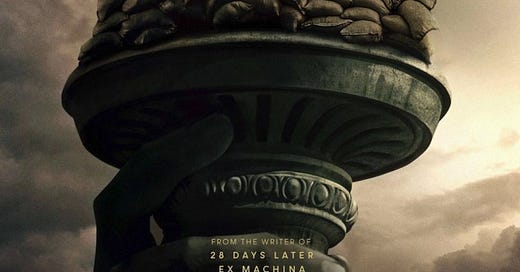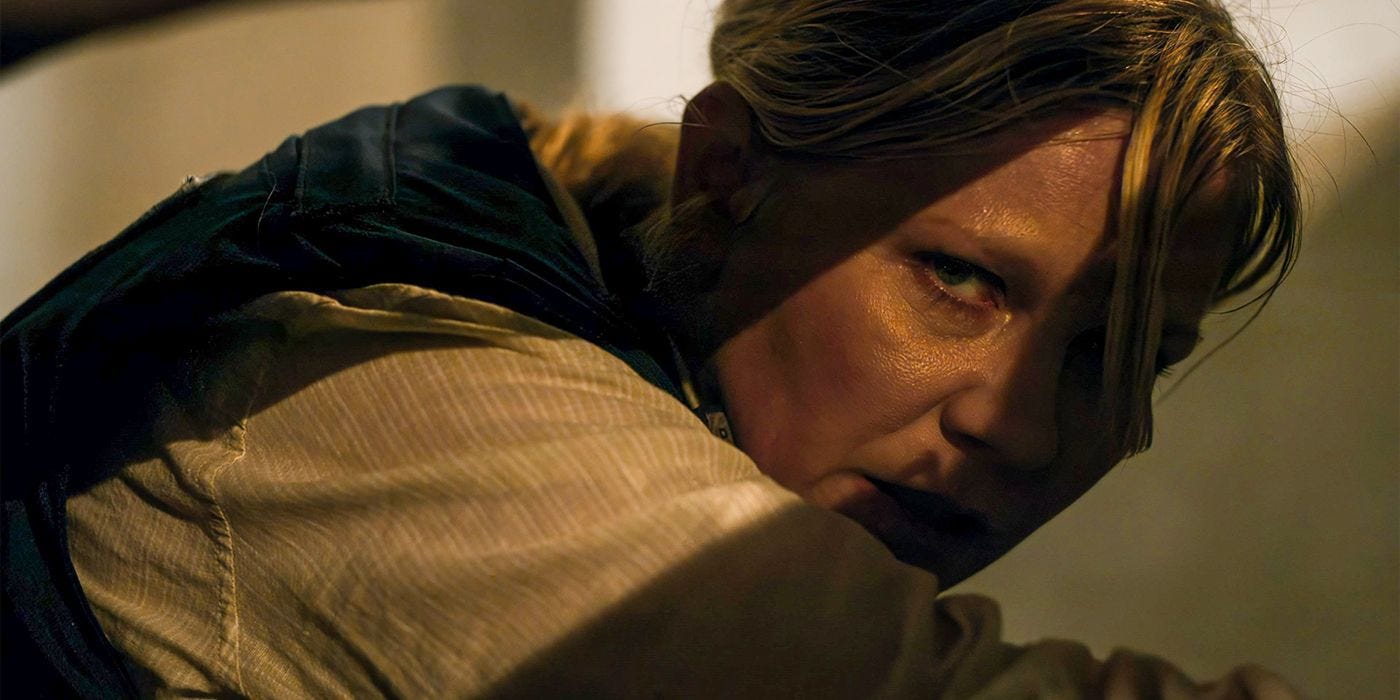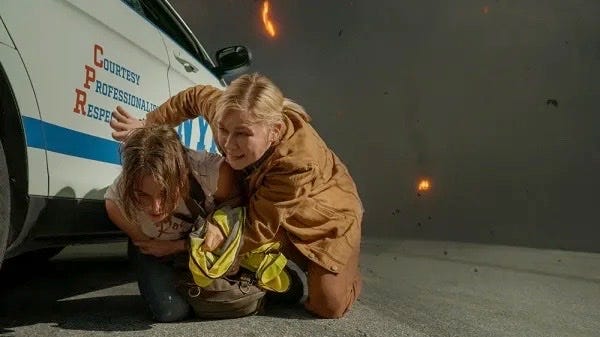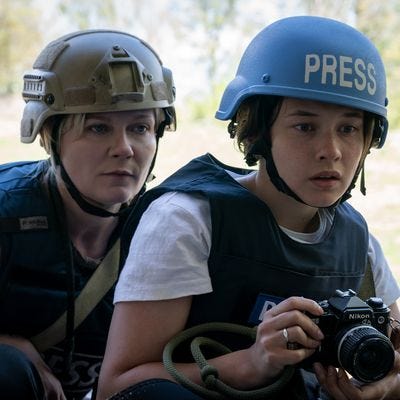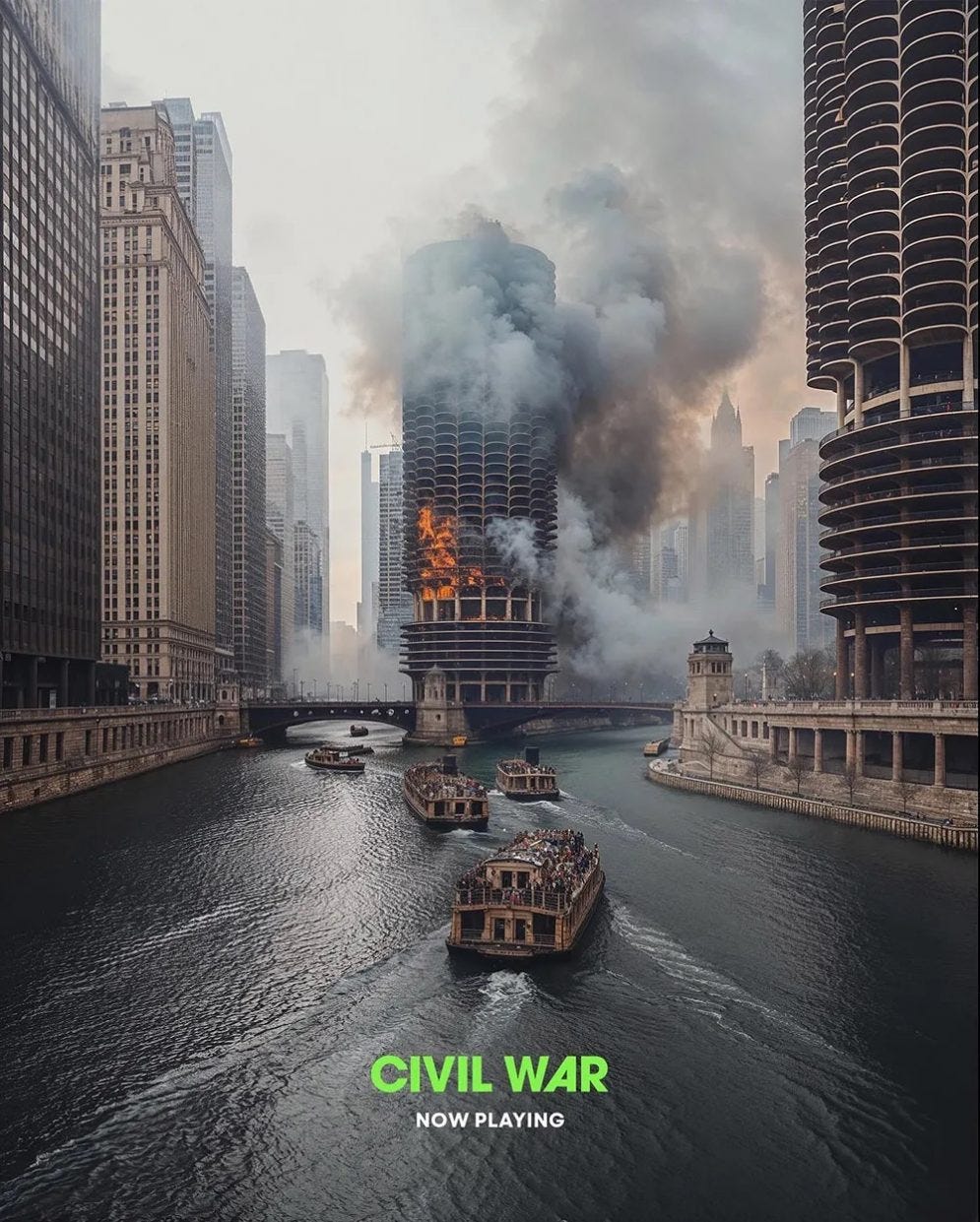We know the life of a war photographer or journalist can't be easy.
There is a montage of images as Lee (Kirsten Dunst) is having a bath, sunk in a tub, and you can literally feel her weariness pushing her down. She is a well-known war photographer, a hero of her times. And her mind is playing out the horrifying details of her moments of glory. Close-range executions, people being burnt alive, bombs eviscerating people - it is a short slam of horror to her senses, a terrifying glimpse into the lifetime-burden carried by a witness.
And stunned and breathless, we realize it's not easy to be a perpetrator, a victim, or a photographer, of the worst a man can ever be.
Lee has plans to travel from New York to Washington, with Joel (Wagner Moura), her journalist friend, to interview and photograph the beleaguered President of USA, as 'Western forces' led by California and Texas, rise in rebellion. It is a war-struck country, dangerous, run amok by stringers, random shooters, private armies and anybody who wants to use a gun.
Alas, they have two further companions, who have attached themselves to the journey - an old grizzled journalist friend Sammy (Stephen McKinley Henderson) who wants to get dropped off at the frontline of the battle in Charlottesville, and Jessie (Cailee Spaeny), a young photographer who idolizes Lee and wants this trip to be an occasion to capture war firsthand. Both riders conjoined, completely against Lee's wish as she knows what it takes to be a war photographer - the dangers and the defencelessness, as a camera is never a gun.
The singular horror of the film comes out of its delineation of human cruelty. In war, the human being opposite you becomes a cipher, divisioned only as enemy, bereft of all human qualities, ignored of his existence as a normal man with family and friends. This blind disregard which humans are capable of whilst lumping their rigid delineations, is absurd when you see it from a distance, and terrifying when put into unthinking action.
And the innocence of Jessie is the counterpoint, the spectacles through which we see the debasement of what human beings are capable of. As we realise the terror a man can become, and the power he starts to yield, when he has a gun in his hands.
And then the silences emerge. The silence of dead bodies. Of friends being in the way of bullets. Of deaths coming, calling, randomly. Of forests burning in the deep of night and sparks flying around like light worms, and good men finding the only peace possible in such a land - of a long permanent sleep.
Is there an occasion where a man can die for something good? Isn't it all for the same thing, however grand it might look. For nothing.
And when Lee turns to Jessie with grief hardened into face-lines, just that look seems to say "Jessie, you record times, you immerse in it, and not do anything about it. You're only the scribe, the onlooker, the one who does not change destinies or directions, but only records it. Even as tears stream down your face, even as you fight every instinct to reach out and do something - you don't. Because you are not the soldier, you are here only to be the witness, the recorder, the one who will do nothing - even if the skies burst, or your body breaks, or your heart gets harder and harder and harder inside."
Because everything is broken. The Capital, the people, White House, everything.
And the jacket which says 'Press' is a jacket not an armour. And even divas are human and they can also come in the way of a bullet.
Maybe, it matters that a photographer is there to record it all.
This haunting gorgeous heartbreaking film. You will never forget it once you see it.
You like cutting-edge films/ series ? Have you seen these -
I write, so you can enjoy and expand your world. Would you like to support me? Well, here’s what you can do -
share this post -
subscribe if you still haven’t -
tell me of your thoughts -

